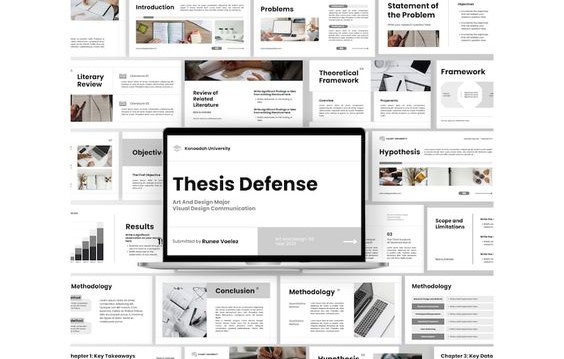The PhD thesis defense. Two simple words, yet they hold a world of pressure and anticipation for any graduate student. It’s the culmination of years of dedicated research, countless sleepless nights, and a relentless pursuit of knowledge. This single event represents the final hurdle to achieving a doctorate, the ultimate validation of your intellectual journey.
While the defense is a formidable challenge, it’s not insurmountable. With careful preparation, clear communication, and a confident demeanor, you can transform this seemingly daunting event into a triumphant celebration of your academic achievement.
1. Master Your Manuscript:
The foundation of a successful PhD thesis defense lies in a thoroughly researched and well-written thesis. Think of your dissertation as a comprehensive story that culminates in a compelling argument. It’s not just about presenting findings; it’s about demonstrating your ability to analyze, synthesize, and contribute to your field of study.
- Know your thesis inside and out: Spend the weeks leading up to the PhD thesis defense immersing yourself in your work. You should be able to explain every aspect of your research, from the initial motivations to the final conclusions, with clarity and confidence.
- Rehearse, rehearse, rehearse: Practice your presentation multiple times, even if it feels tedious. This will help you identify potential weak points, refine your argument, and develop a natural flow for your delivery.
- Engage with feedback: Don’t be afraid to seek feedback from your advisor, colleagues, or peers. Their insights can help you refine your research and communication style.
2. Prepare for the Questioning:
The PhD thesis defense is not just about delivering your presentation. It’s also a platform for engaging with your committee, answering their questions, and demonstrating your intellectual agility.
- Anticipate the questions: Based on your research and the known areas of expertise of your committee members, brainstorm potential questions. This foresight will enable you to prepare compelling answers, allowing you to navigate the questioning with confidence.
- Practice with mock defenses: Conduct mock defenses with peers or mentors to prepare for the real event. This simulation will help you refine your responses and develop a more confident approach to handling questions.
- Listen actively and respond thoughtfully: Don’t just focus on getting through the questioning. Engage with your committee members. Listen attentively to their questions, pause to process them before responding, and offer articulate and insightful answers.
3. Present with Confidence:
The way you deliver your presentation can heavily influence the overall perception of your PhD thesis defense. Projecting confidence and clarity can make even a complex argument resonate with your audience.
- Practice your presentation with a timer: Familiarize yourself with the allocated time for your presentation and make sure you can comfortably deliver your entire argument within the allotted time.
- Engage with your audience: Maintain eye contact with your committee members and use clear and concise language. This will enhance their engagement and foster a more interactive and enriching discussion.
- Don’t be afraid to show your passion: Your enthusiasm for your research is contagious. Let your passion shine through in your presentation, highlighting the significance of your work and its potential impact on your field.
4. The Art of the Argument:
The heart of a successful PhD thesis defense lies in your ability to effectively communicate and defend your argument.
- Embrace the opportunity to clarify: Your committee members are there to help you refine your work. Treat their questions as opportunities to clarify your ideas, strengthen your argument, and demonstrate your understanding of your research.
- Maintain a calm demeanor: Even if you face challenging questions, stay calm and composed. Avoid getting defensive or emotional, instead focusing on offering clear and concise responses.
- Be prepared to deviate: While you should be prepared to discuss specific points, be ready to adapt to unanticipated questions. This adaptability demonstrates intellectual flexibility and your ability to think critically on your feet.
5. Beyond the Dissertation:
The PhD thesis defense is not just about passing a hurdle. It’s about showcasing your intellectual journey, your commitment to research, and your potential as a future scholar.
- Prepare a compelling narrative: Don’t just present your findings, weave them into a compelling story that demonstrates the evolution of your research.
- Highlight the impact: Articulate the potential impact of your research, highlighting its implications for your field, the broader academic community, and even society as a whole.
- Embrace the opportunity to learn: The PhD thesis defense is not the end of your intellectual journey, but a steppingstone. Embrace the experience as a learning opportunity, take feedback constructively, and use it to refine your future research endeavors.
6. The Aftermath: Embracing the Outcome
The PhD thesis defense is a significant milestone. Regardless of the outcome, remember to acknowledge and celebrate your achievements.
- Accept feedback graciously: Even if the committee has some reservations, treat their feedback as constructive criticism. It can help you improve your work and become a stronger researcher.
- Reflect on your journey: Take time to reflect on the journey that led to the defense, acknowledging your dedication, perseverance, and the support you received along the way.
- Embrace the future: Whether your defense concludes with a triumphant “congratulations” or a request for revisions, remember that it’s a steppingstone to a brighter future. The skills and knowledge you gained throughout your PhD program will open doors to exciting opportunities and further academic endeavors.
Final Thoughts
The PhD thesis defense is a challenging yet rewarding event. By carefully preparing, engaging with your committee, and embracing the process, you can transform this pivotal moment into a triumphant celebration of your academic achievement and a steppingstone to a successful future in academia.
